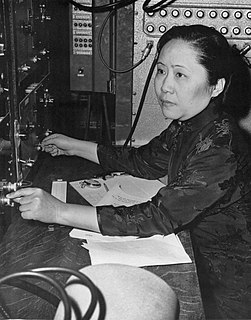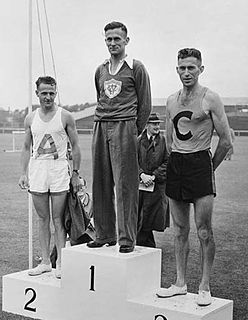A Quote by Christopher Lasch
Once women begin to question the inevitability of their subordination and to reject the conventions formerly associated with it, they can no longer retreat to the safety of those conventions. The woman who rejects the stereotype of feminine weakness and dependence can no longer find much comfort in the clich? that all men are beasts. She has no choice except to believe, on the contrary, that men are human beings, and she finds it hard to forgive them when they act like animals.
Quote Topics
Act
Animals
Associated
Beasts
Begin
Beings
Believe
Choice
Comfort
Contrary
Conventions
Dependence
Except
Feminine
Find
Finds
Forgive
Hard
Hard To Forgive
Human
Human Being
Human Beings
Inevitability
Like
Longer
Men
Much
No Choice
On The Contrary
Once
Question
Reject
Rejects
Retreat
Safety
She
Stereotype
Subordination
Them
Those
Weakness
Woman
Women
Related Quotes
Feminism has nothing at all to do with being 'feminine.' Feminine means accentuating the womanly attributes that make women deliciously different from men. The feminine woman enjoys her right to be a woman. She has a positive outlook on life. She knows she is a person with her own identity and that she can seek fulfillment in the career of her choice, including that of traditional wife and mother.
It is shameful that there are so few women in science. [...] In China there are many, many women in physics. There is a misconception in America that women scientists are all dowdy spinsters. This is the fault of men. In Chinese society, a woman is valued for what she is, and men encourage her to accomplishments yet she remains eternally feminine.
Anais Nin shows an occasional grace in writing, but her work is quite foreign to me, precisely because she wants so much to be feminine and not feminist. And then she is so gaga before so many men. She talks about men I know in France, men who were less than nothing, and she considers them kings, extraordinary people.
I have seen American determination in people like Debbi Sommers. She runs a furniture rental business for conventions in Las Vegas. When 9/11 hit, and again, when the recession tanked the conventions business, she didn't give up, close down, or lay off her people. She taught them not just to rent furniture, but also to manufacture it.
Over and over again, stories in women's magazines insist that women can know fulfillment only at the moment of giving birth to a child. They deny the years when she can no longer look forward to giving birth, even if she repeats the act over and over again. In the feminine mystique, there is no other way for a woman to dream of creation or of the future. There is no other way she can even dream about herself, except as her children's mother, her husband's wife.
If women had power, what would men be but women who can't bear children? And what would women be but men who can?" "Hah!" went Tenar; and presently, with some cunning, she said, "Haven't there been queens? Weren't they women of power?" "A queen's only a she-king," said Ged. She snorted. "I mean, men give her power. They let her use their power. But it isn't hers, is it? It isn't because she's a woman that she's powerful, but despite it.
Once you cease to be a master, once you throw off your master's yoke, you are no longer human rubbish, you are a human being, and all the things that adds up to. So, too, with the slaves. Once they are no longer slaves, once they are free, they are no longer noble and exalted; they are just human beings.
A woman's work, from the time she gets up to the time she goes to bed, is as hard as a day at war, worse than a man's working day. ... To men, women's work was like the rain-bringing clouds, or the rain itself. The task involved was carried out every day as regularly as sleep. So men were happy - men in the Middle Ages, men at the time of the Revolution, and men in 1986: everything in the garden was lovely.
They're very tenacious. They're dedicated. Once a woman decides she's going to do something, she'll probably stick to it. The only problem with women is if there's anything wrong with them, they won't tell you. They'll get out there and run on one leg. They don't moan and groan like a lot of men do.
Women have always been more critical of marriage than men. The great mysterious irony of it is - at least it's the stereotype - that women want to get married and men are trying to avoid it. Marriage doesn't benefit women as much as men, and it never has. And women, once they are married, become very critical of marriages in a way that men don't.







































